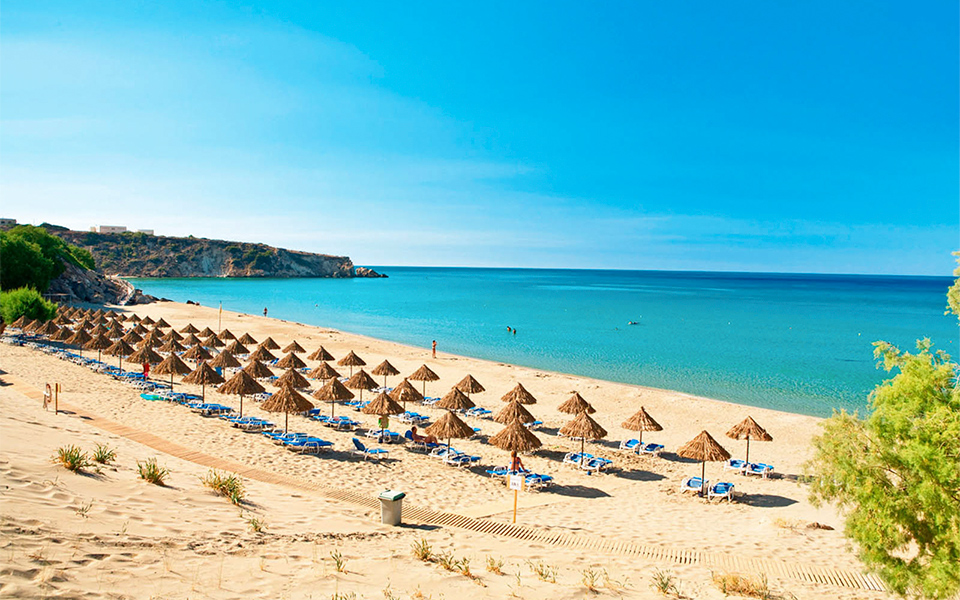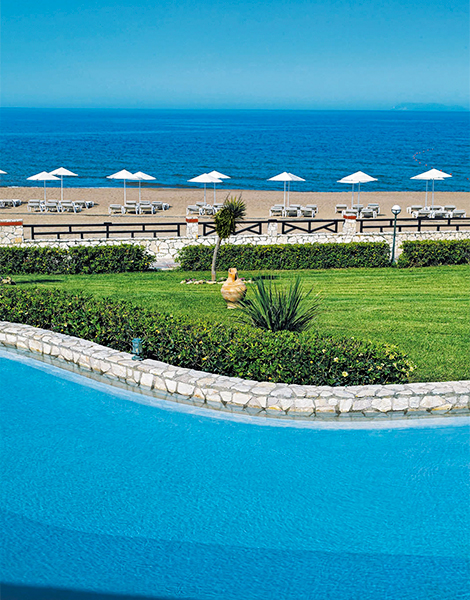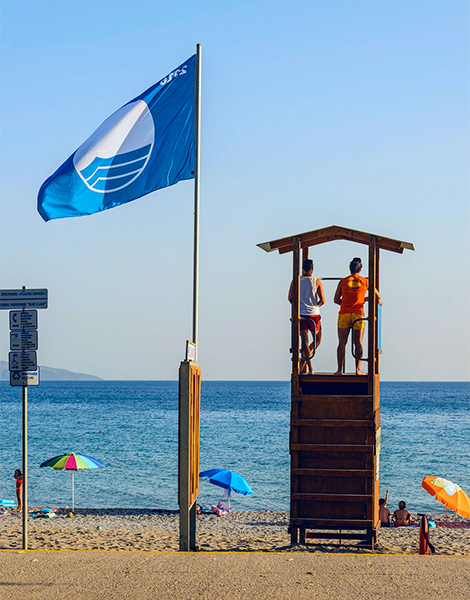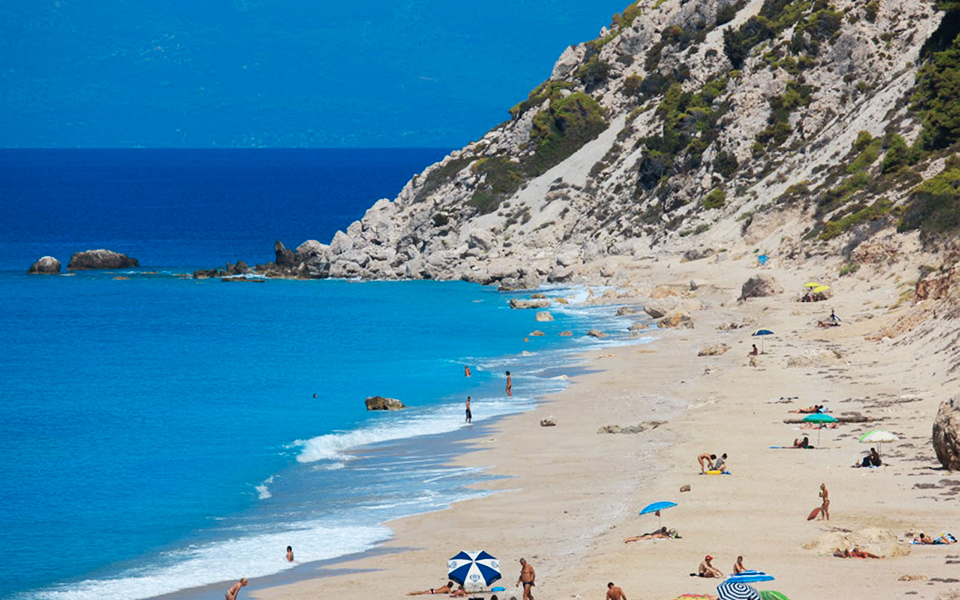Greece has been awarded a total of 486 of Blue Flags this year, highlighting the cleanliness and safety of its many beaches, with the country coming second in the worldwide rankings behind Spain.
The Blue Flag program is operated under the non-profit Foundation for Environmental Education, headquartered in Copenhagen. The program is celebrating its 30 anniversary this year and is one of the world’s most respected eco-labels.
In total, the organization awarded blue flags to 3,574 beaches, 662 marinas and 50 eco-tourism boats in 47 participating countries around the world. In Greece the program is implemented by the Hellenic Society for the Protection of Nature. According to the organization 25% of the newly honored beaches in 2017 are located in Greece.

© Hellenic Society for the Protection of Nature (Creative Commons License BY-NC-SA 3.0)
Overall Greek coastal sites received 56 more Blue Flag awards compared to 2016. The regions with the highest concentrations of Blue Flags are Halkidiki in northern Greece, Lasithi in Crete and the Cyclades. However only a relatively small number of Greek marinas – 12 in total – were awarded with blue flags.
Specifically of the 486 Blue Flag awarded beaches in Greece: 112 are located in Crete, 96 in Central Macedonia, 68 in the Southern Aegean, 49 in the Ionian islands and 29 in the Peloponnese. The region with the most Blue Flags remains Halkidiki in northern Greece with 71 (compared to 52 last year). Lasithi in Crete came second with 42, followed by the Cyclades (35), Hania (34), the Dodecanese (33), Irakleio (19) and Rethymno (17).
The region of Attica was awarded with 16 blue flags and Epirus with 11.

© Hellenic Society for the Protection of Nature (Creative Commons License BY-NC-SA 3.0)

© Hellenic Society for the Protection of Nature (Creative Commons License BY-NC-SA 3.0)
Blue Flags are awarded on the basis of environmental, educational, safety as well as access-related criteria. Spot checks take place without warning between July and August at beaches, and throughout the year at marinas. The awards this year are based on audits conducted in 2016.
The inclusion of safety and disabled access-related criteria means that many Greek beaches fell short of the mark due to the absence of lifeguards and / or access points for the disabled. For example less developed islands including Sifnos, Serifos, Amorgos, Astypalaia, Karpathos, Ikaria, Skyros and Alonissos did not pick up a single Blue Flag despite having some of the most pristine beaches and waters in the country.
The Greek marinas awarded with blue flags are located in Halkidiki (Porto Karras, Sani and Miraggio), in Attica (Olympic Marine in Lavrio and Agios Kosmas and Flisvos on the southern coast), and in Lefkada, Corfu (Gouves), Kos, Leros and in the western mainland region of Aetolo-Acarnania (Cleopatra Marina).
For a pdf map of the full list of Blue Flag awarded beaches in Greece click here.











